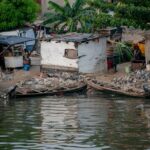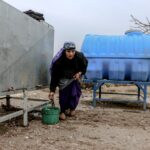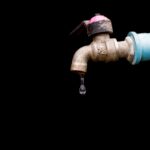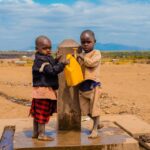Why WASH (Water, Sanitation, and Hygiene) Is A Big Deal
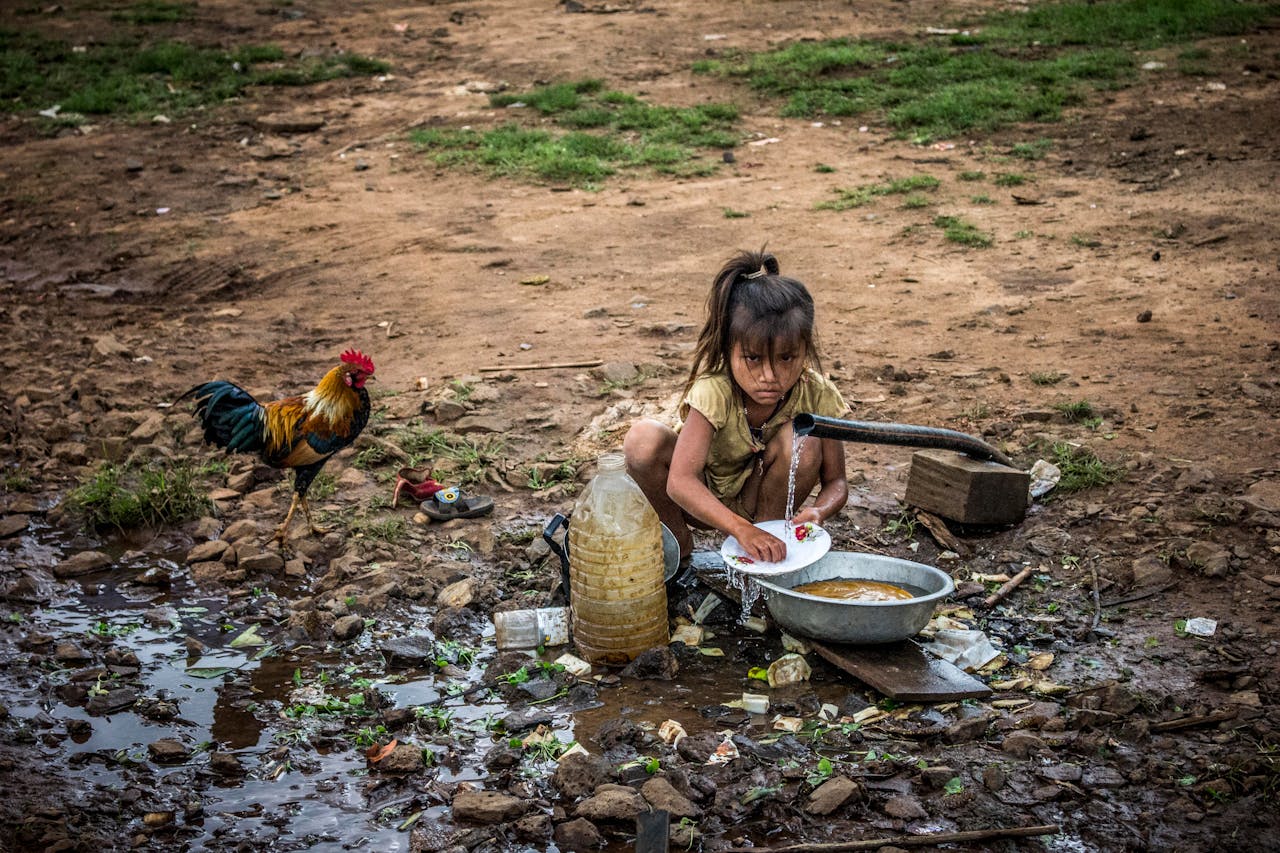
WASH stands for Water, Sanitation, and Hygiene – three essential things needed for a healthy life. Clean water helps prevent many diseases, proper sanitation ensures waste is safely managed, and good hygiene practices like washing hands help stop the spread of illnesses. These three factors work together to improve health, education, and even economic growth.
Despite how important WASH is, billions of people around the world still don’t have access to it. More than 2 billion people don’t have safe drinking water, and 3.5 billion don’t have toilets or proper ways to manage waste. The effects are most severe in poorer countries, where a lack of WASH often leads to illness, missed school days, and poverty.
Addressing these issues is important not just for health but for building better lives. When communities have clean water and sanitation, healthcare costs go down, children can attend school, and families have more time and energy for work and other opportunities.
Health Implications of WASH
WASH is key to preventing diseases and saving lives. Without clean water, many communities face illnesses like diarrhea, cholera, and typhoid. Diarrhea, for example, is one of the biggest causes of death in children under five, killing over a million kids every year.
Sanitation is just as important. When human waste isn’t properly managed, it can pollute drinking water, leading to serious outbreaks of disease. Building toilets and sewage systems is a simple way to protect water supplies and improve health.
Hygiene also plays a big role in staying healthy. Washing hands with soap can prevent diseases that spread through touch, like diarrhea and respiratory infections. It’s a simple habit that can make a big difference, especially for children.
WASH is also critical for pregnant women and newborn babies. Without clean water and safe hygiene practices during childbirth, infections are common and can cause serious complications. Providing clean water and proper sanitation in health centers can save the lives of mothers and their babies.
The COVID-19 pandemic showed just how important WASH is for everyone. Washing hands became one of the main ways to stop the virus from spreading, but many people couldn’t do this because they didn’t have clean water or soap. This made it harder to control the virus in some areas.
WASH and Education
Access to clean water, sanitation, and hygiene plays a big role in keeping kids in school. Without these, children, especially girls, often miss school to fetch water or because of health issues caused by poor sanitation.

In many communities, girls drop out of school when they reach puberty because there are no private or clean toilet facilities. Providing safe, separate toilets in schools can help ensure that girls continue their education, improving their future prospects.
When schools have access to WASH facilities, children are less likely to fall sick. This means fewer missed school days and a better chance for them to learn and thrive. Programs that teach children about hygiene, such as handwashing, also encourage healthy habits that they take home to their families.
WASH and Gender Equality
WASH is closely linked to gender equality. In many parts of the world, women and girls are responsible for collecting water for their families. This task often takes hours every day, leaving them with little time for school, work, or personal growth.
By providing clean water close to homes, women and girls gain more time for education and economic activities. This not only benefits them but also strengthens entire communities as they contribute to development and decision-making.
Sanitation is another area where WASH makes a big difference. Millions of people still practice open defecation – access to clean and private toilets will ensure dignity and safety for women and girls, especially in public places and schools.
WASH and Economic Development
When communities have access to WASH, it leads to economic growth. Families spend less money on healthcare because there are fewer waterborne illnesses. This allows them to use their income for food, education, and other needs.
Clean water also supports local businesses. Farmers can grow more crops, and small businesses that rely on water, like food vendors or hair salons, can operate more efficiently. In areas where clean water and sanitation are introduced, productivity increases because people are healthier and miss fewer workdays.
Investing in WASH is not just for meeting basic needs, investing in it will create opportunities for families and communities to thrive.
The Role of WASH in Crisis Response
In emergencies like floods, droughts, or conflicts, access to WASH becomes even more critical. Without clean water and proper sanitation, diseases can spread quickly, especially in overcrowded shelters or camps.
Organizations responding to crises often focus on setting up temporary WASH facilities to prevent outbreaks. This includes providing clean water through tanks or purification tablets, building temporary toilets, and teaching hygiene practices to affected communities.
WASH also helps rebuild stability after a crisis. Restoring clean water and sanitation allows communities to focus on recovery instead of battling waterborne diseases.
Partnerships for WASH Access
Improving WASH access requires teamwork among governments, NGOs, private companies, and local communities. Governments play a role in creating policies and investing in infrastructure, while NGOs bring expertise and resources to underserved areas.
Private companies can contribute through corporate social responsibility programs, providing funding or innovative technologies to improve water access and sanitation.
Local communities are key players in ensuring WASH solutions are sustainable. By involving them in decision-making and maintenance, these systems can last longer and meet their specific needs.
Future Challenges and Innovations in WASH
While significant progress has been made, challenges like population growth, urbanization, and climate change continue to strain WASH resources. Rapidly growing cities often struggle to provide adequate water and sanitation facilities, while rural areas still face difficulties in reaching remote populations.
Innovations like solar-powered water pumps, low-cost filtration systems, and mobile apps for water monitoring are helping to address these challenges. These technologies are making WASH solutions more affordable, accessible, and sustainable, especially in low-income regions.
The future of WASH lies in combining technology with local knowledge, ensuring solutions are practical and culturally relevant. Governments and organizations must also adapt to changing climates, ensuring communities can access clean water even in extreme weather conditions.
WASH in Urban Settings
Urban areas, especially in developing countries, face different challenges in ensuring access to water, sanitation, and hygiene (WASH). Rapid population growth, unplanned settlements, and strained infrastructure often lead to a lack of reliable water supply, inadequate sanitation systems, and poor waste management.
One of the most significant issues is access to clean water. Many urban dwellers, particularly in slums, rely on informal sources like water vendors or shared community taps, which are often expensive and unreliable. Expanding municipal water supply systems to include marginalized areas can help address these disparities. Additionally, water kiosks and automated dispensers are emerging as affordable solutions to ensure equitable access to clean water.
Sanitation is another major concern in cities. Overcrowded urban spaces frequently lack adequate sewage systems, leading to open defecation or the use of unsafe pit latrines. Upgrading these systems to include proper wastewater treatment plants is essential for public health and environmental protection. In high-density areas, container-based sanitation and shared community toilets have proven to be effective short-term solutions.
Urban hygiene promotion also plays a vital role in maintaining health. Initiatives like providing public handwashing stations, especially in marketplaces and transport hubs, can significantly reduce the spread of infectious diseases. Community-led awareness campaigns help foster long-term behavioral change, ensuring that hygiene practices become part of daily life.
Finally, waste management is intertwined with WASH in urban settings. Poorly managed waste often clogs drainage systems, leading to flooding and contamination of water sources. Establishing efficient waste collection systems and promoting recycling can mitigate these issues, creating cleaner and healthier cities.
A holistic approach to urban WASH, supported by strong policies and community involvement, is vital to overcoming these challenges. Investments in infrastructure, technology, and education can help urban areas build resilient WASH systems that cater to the needs of growing populations.
WASH and Sustainable Development Goals (SDGs)
WASH is central to achieving the United Nations’ Sustainable Development Goals (SDGs), particularly Goal 6 which is to “Ensure availability and sustainable management of water and sanitation for all”
Beyond Goal 6, WASH impacts other SDGs like health (Goal 3), education (Goal 4), and gender equality (Goal 5). Access to clean water and sanitation creates a ripple effect, contributing to poverty reduction, economic growth, and environmental sustainability.
Governments, NGOs, and private entities must align their WASH initiatives with these goals to ensure long-term, global progress.
Conclusion
Access to safe water, sanitation, and hygiene (WASH) is fundamental to building healthier, more equitable, and sustainable communities. From improving health outcomes and boosting education to driving economic empowerment and fostering climate resilience, WASH’s impact is far-reaching. Ensuring clean water and sanitation isn’t just about addressing current needs, it’s about investing in a better future for everyone.
Organizations like Aqua Maya are playing a crucial role in making clean water accessible, especially in underserved regions. By implementing innovative WASH solutions and engaging local communities, Aqua Maya demonstrates the importance of tailored approaches to tackling water and sanitation challenges.
Moving forward, collaboration among governments, NGOs, private entities, and communities will be key to achieving sustainable WASH access. Through collective effort and commitment, we can ensure that clean water and sanitation are not a privilege but a basic right for all.
Sources:
1. https://www.unicef.org/water-sanitation-and-hygiene-wash
2. https://www.un.org/en/observances/toilet-day. 3. https://www.un.org/sustainabledevelopment/water-and-sanitation/
4. https://usaidmomentum.org/what-we-do/improving-health/wash/
5. https://iwrmactionhub.org/learn/iwrm-tools/wash-and-gender
8. https://sdgs.un.org/goals/goal6

